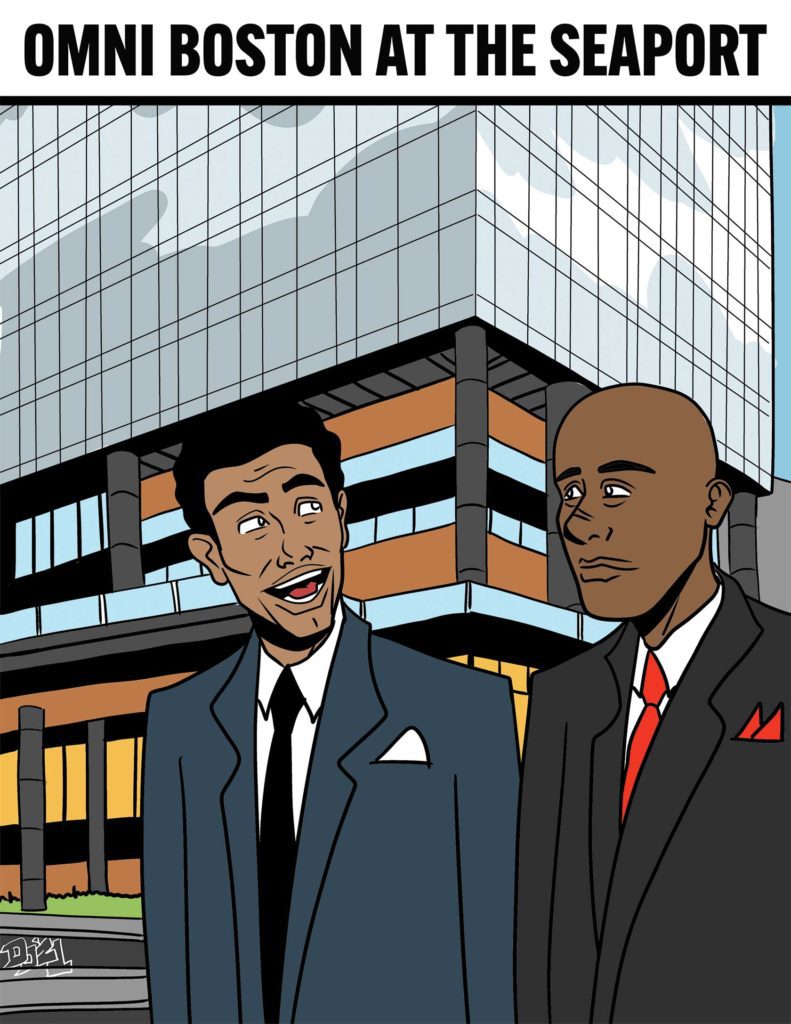Omni Hotel
There are several reasons for exultation among Blacks with the recent ribbon-cutting of the new Omni Boston Hotel at the Seaport.

Economic development by Blacks has been so rare that there is usually a joyous expression when a sizable Black project matures and comes to fruition. There are several reasons for exultation among Blacks with the recent ribbon-cutting of the new Omni Boston Hotel at the Seaport.
First of all, the magnificence of the structure is enough to earn applause. The hotel has two 22-story buildings with 1,054 rooms, seven restaurants, a spacious roof deck, a spa, an athletic center and all the conveniences one might expect in a first-class hotel.
Secondly, projects of that quality are usually beyond the reach of participation by Blacks. The Omni Boston Hotel was a $550 million project. But not only were there 39 Black investors, the project was essentially conceived by Blacks.
The usual way diversity is achieved in business projects is that when white developers require government involvement, they open the door for others only to the extent that they must. But Thomas Glynn, former CEO of Massport, with the support of Duane Jackson and other directors, turned that approach on its head and created the “Massport Model.”
Developer Richard Taylor and associates conceived of the project and sought partners who would agree that every aspect of the investment, construction and management of the hotel would have no less participation than 25% people of color. That is far more extensive racial diversity than is customary. The usual standard is simply to assure that a certain percentage of those working in construction are employed.
One condition that gave Taylor the clout he needed to push forward is that the location of the hotel is on public land. Massport is the largest landowner in the Seaport. Many of the new buildings erected or others renovated are built on land leases. Politics becomes involved in arranging for such a lease.
The goal now, according to Taylor, is for businesspeople to include Blacks in future projects, even without governmental inducements.






